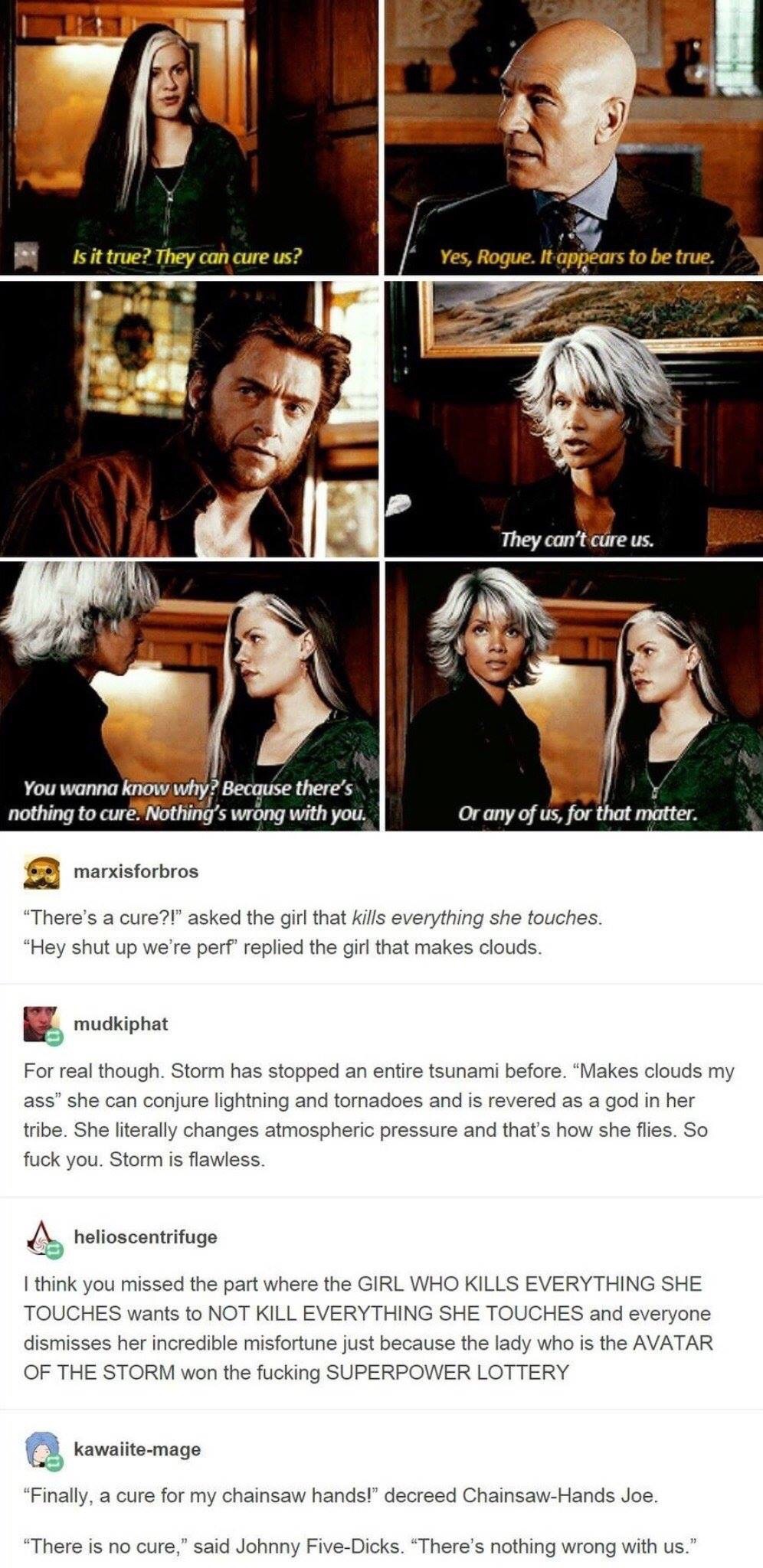this post was submitted on 25 Jan 2024
1372 points (99.4% liked)
Funny: Home of the Haha
5691 readers
458 users here now
Welcome to /c/funny, a place for all your humorous and amusing content.
Looking for mods! Send an application to Stamets!
Our Rules:
-
Keep it civil. We're all people here. Be respectful to one another.
-
No sexism, racism, homophobia, transphobia or any other flavor of bigotry. I should not need to explain this one.
-
Try not to repost anything posted within the past month. Beyond that, go for it. Not everyone is on every site all the time.
Other Communities:
-
/c/TenForward@lemmy.world - Star Trek chat, memes and shitposts
-
/c/Memes@lemmy.world - General memes
founded 1 year ago
MODERATORS
you are viewing a single comment's thread
view the rest of the comments
view the rest of the comments

Pedophiles. Also (historically) AIDS.
Yeah, but in those cases, no one would say "we don't need a cure."
I disagree. There are definitely people who would be “you just need to control it, no need to change it”. Which is why Storm is portrayed like that. It's a lack of empathy.
I suppose it depends on how the scene puts delivered. If it is portrayed as a lack of empathy or just understanding, then yes I absolutely agree it's realistic. If it's portrayed as an empowering moment, that's where we run into issues.
From distant memory, it was the latter, but I'm trying to find clips that put it in context. Let me know if you find one.
Tell that to the gay kid in the 80s during the AIDS crysis when everyone was scared of gay people, who just wanted the thing that makes everyone hate them just go away.
But there's a difference here. Yes there is a parallel to the AIDS epidemic here, but the difference is that the panic surrounding those with AIDS was unfounded and steeped in bigotry, while the fear of being killed by touching Rouge is very real.
Like, no it's not a moral failing to have AIDS, but that doesn't mean the incredible advancements we've made in HIV treatment are a bad thing.
To be clear, Rogue is still absolutely valid as a character who struggles with an innate affliction that is, for perceived or misguided reasons, considered dangerous. There's definitely parallels to conversion therapy and the like. But the analogy to the persecution of marginalized groups is just broad enough to contain both those whose identity is the "disease" (Storm) and those whose identity is tied to but not synonymous with their affliction (Rogue). It's the distinction that makes this particular line hit just a bit off the mark. Conversion therapy vs AZT, as it were.
Whether the threat is real or perceived, the end result is the exact same. Society blames a particular trait shared by a group of people even though a very small percentage of those people pose any sort of threat due to that trait. Gay people were literally killed because of that perceived threat. And often no one was punished.
You also have to remember the time when this movie was released. Gay people had only just started being accepted, and there was a concerted effort by certain religious groups to try to derail any legal recognition of gay people. Don't Ask, Don't Tell was still a very real thing in the military. The entire trilogy is an allegory for gay people. The original comics may have been about race, but these movies were for a different audience. It was a commentary on exactly what was happening during that time.
You can criticize the sloppy writing of the third movie, but don't dismiss the efforts by people trying to get a message across to the general population.